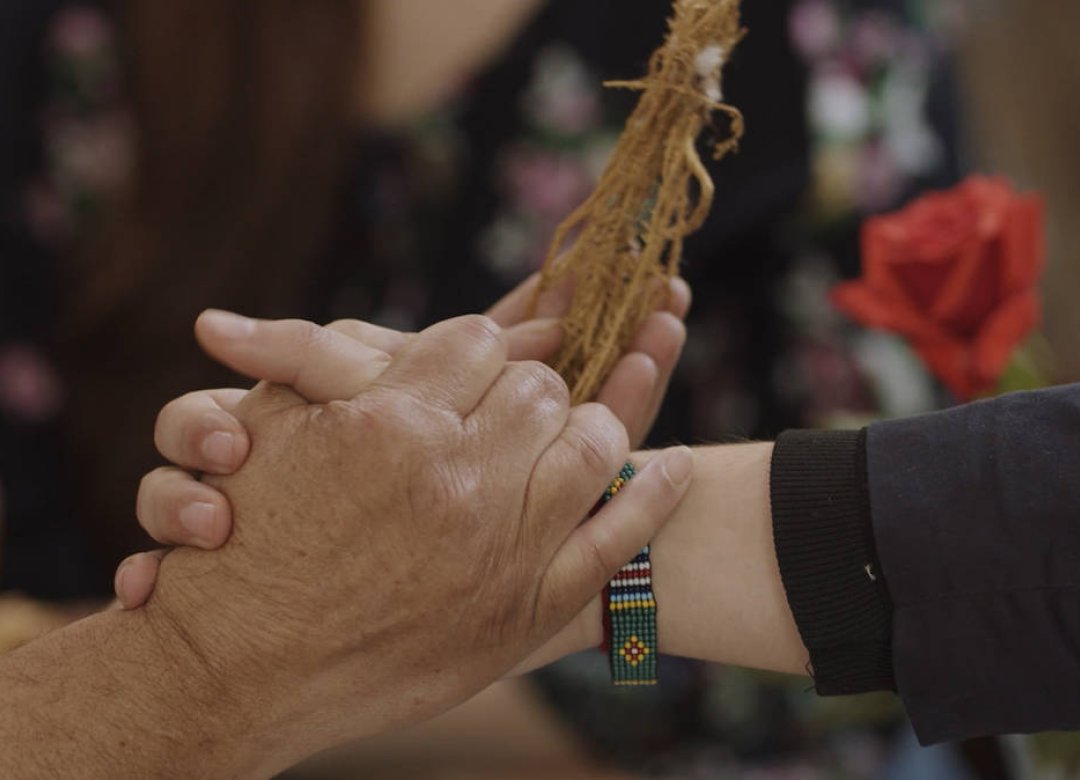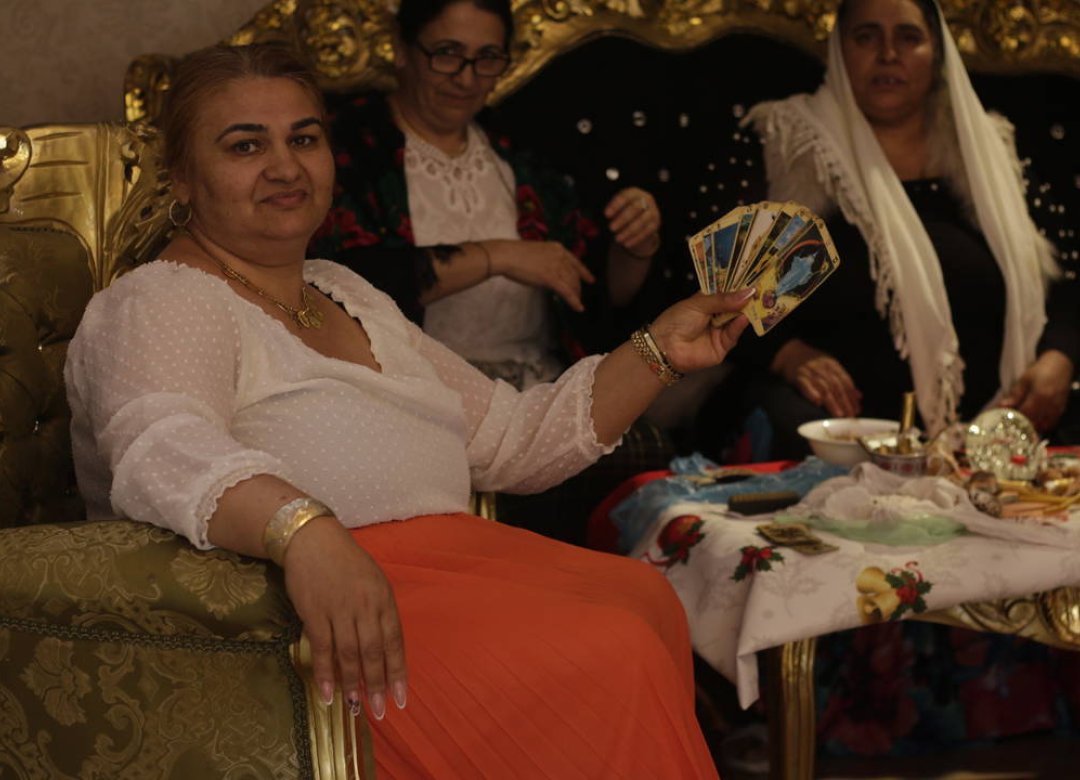Synopse
My family believes there´s a curse casted on us by our mean ancestor. I don't know if the curse is real, but I'm sure there´s a trauma, transmitted in our family for generations - during the Second World War, my great-grandfather was a partisan the whole his family, including small children was shot by Gestapo, there was a lot of violence around my family, but also inside the family. Sometimes I wonder if being Roma is a curse or a blessing. I´m wondering if some magic can help to heal it. That´s why I want to find a real Roma witch who can help to break this curse, because I want to save my three-years old daughter who is supposed to be the fifth and the last victim of it.
Magical rituals and fortune – telling have fascinated me since I was a little girl, thanks to my aunt Marcela, who is a fortune teller. I realise, Marcela sinks into deep depression and I wonder if she is affected by curse too, that´s why we embark on the way together, encouraged by two friends, Anastasia and Michaela, who seek for help themselves, we try to immerse in a fairy tale world, the traditional way of passing on knowledge among Roma people. In a playful, self-ironic way, we hope to find a recipe to help us.
In encounters with the old, traditional Romani witch Elena, the eclectic Vanda with an university degree, and the healer Marta, a former workaholic in retirement, they discover step by step new perspectives on our various problems: Anastasia, Russian in Czech exile, struggles with fear, guilt and loneliness due to the war in Ukraine; Michaela, Slovakian dance teacher, seeks to make contact with her boyfriend who committed suicide four years ago; and I and Marcela want to escape the trauma of repeated experiences of violence in their family history.
If I will be able to break the curse is still open. However, the premise is probably that people must first discover the magic within themselves so that they can be helped.
Magical rituals and fortune – telling have fascinated me since I was a little girl, thanks to my aunt Marcela, who is a fortune teller. I realise, Marcela sinks into deep depression and I wonder if she is affected by curse too, that´s why we embark on the way together, encouraged by two friends, Anastasia and Michaela, who seek for help themselves, we try to immerse in a fairy tale world, the traditional way of passing on knowledge among Roma people. In a playful, self-ironic way, we hope to find a recipe to help us.
In encounters with the old, traditional Romani witch Elena, the eclectic Vanda with an university degree, and the healer Marta, a former workaholic in retirement, they discover step by step new perspectives on our various problems: Anastasia, Russian in Czech exile, struggles with fear, guilt and loneliness due to the war in Ukraine; Michaela, Slovakian dance teacher, seeks to make contact with her boyfriend who committed suicide four years ago; and I and Marcela want to escape the trauma of repeated experiences of violence in their family history.
If I will be able to break the curse is still open. However, the premise is probably that people must first discover the magic within themselves so that they can be helped.
Fotogalerie


